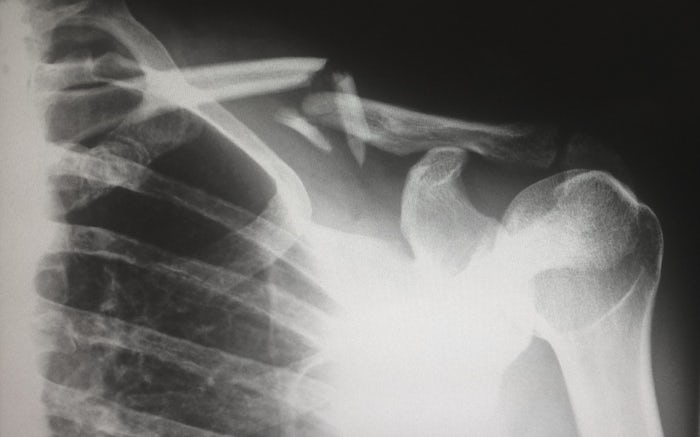What Is Caregiver Care?
Caregiver care is just as important as patient care. As caregivers, we often spend so much time caring for others, we forget to care for ourselves. It's very easy to do and it can happen so fast. If you don't take care of yourself, how can you take care of others?
Everyone is different Facility setting Injuries Overtime Caring from home Emotional care
Everyone is Different
How do we do this exactly? There are too many ways to list that we push ourselves too far physically and emotionally. There is only so much we can bear before we begin hurting ourselves. You may be able to handle more than others while others seem to never need help.
Don't be afraid to admit when you are feeling overwhelmed. There is nothing wrong with asking for help. You may feel like you are putting your burdens on others or you may think you are just being weak, but everybody has a breaking point.
The Facility Setting
Working in a hospital as a certified nursing assistant as well as a registered nurse, I have help all of the time. If I feel like I absolutely can't do something on my own or if I am too busy to handle all of what is going on, I will ask for help. Is help always available right away? I'd be lying if I said yes but eventually, others always help when they have the chance.
On the flip side, I will help others when they need it. Sometimes after I get caught up, I'll call and ask others if they need help even if they didn't ask for it. We work as a team and do our best to make sure the needs for our patients as well as ourselves are being met.
This is how every hospital and similar facility should be. Just because you are caught up on your assignment doesn't mean everyone else is. We all eventually need a helping hand and we shouldn't have to beg for it. Caregiver care is a group effort that requires great caregiver communication.
Nobody should ever say "It's not my assigned patient so I refuse to help them." Although some employees don't necessarily say that, their actions speak for themselves. I am by no means pointing fingers or even speaking for my hospital at all, I'm just saying there are caregivers out there who have that kind of attitude. Don't let yourself be one of them.

Caregiver Injuries
I injured my back years ago in high school so every now and then, I will move a certain way and end up with back pain for awhile. After all these years, why do I still have problems with it? Because back when the pain first started, I ignored the problem and it got worse, so much worse that I now have to live with this problem for as long as I live. This can happen to anybody.
When the pain comes back, I will tell my coworkers so they know I need extra help with any heavy lifting. They always understand because many of them have injured their back in the past while caregiving. It is very common and easy to do.
If you ever injure any part of your body while caring for others, do not simply ignore it and hope it eventually goes away. Let your supervisor know and take it easy or depending on the severity, take the day off.
If a trip to the emergency room or workmans comp is necessary, don't be afraid to say so. Don't worry about what other coworkers will think. You know your body better than anyone else and you should take care of it sooner rather than later. This is a very important aspect of caregiver care.
Working Overtime
I personally like to work a lot of overtime. My coworkers know this so I will often get offered to work on my days off. While I will say yes at times, I also know how to say no. If I need a day off whether it be to spend time with family, friends, or just to relax and recover, I will say no.
Don't suffer from caregiver fatigue. Caregiver care includes resting. You should know when you need a break. If you feel like you need a day off, don't accept overtime. In the long run, you will not only hurt yourself, but your coworkers and even patients as well. It is easily noticeable when someone is pushing their body too far.
You should care for others when you are at your best. That means plenty of rest and breaks when needed. A comfortable bed and coffee often helps too. Without these things, your work will not be as strong as it should be. Our patients and coworkers need us alert and functional.
Caring From Home
Aging baby boomers are on the rise. If you care for a family member or close friend from home, you really need to focus on taking care of yourself. This can be especially true if they are combative at times or have dementia which is one of the common medical conditions that make caregiving harder. I have personally never had to be a home caregiver, at least not yet, but I can imagine it would be much tougher emotionally than working in a hospital with complete strangers.
For those of you who give this care, you shouldn't feel guilty when you need help. Don't be afraid to ask. Take time to do things in life that you enjoy. Although it may be difficult to arrange someone to fill in for you, you should do it often. Your loved one needs you to be healthy and emotionally stable in order for you to give them proper care.
Ask family, friends, or even hire a home health aide. Another great option would be to consider a medical alert device. A very hard move to make would be to place them in a senior living home for long-term care, but it is necessary in many situations. Help is available, sometimes you just have to really look for it. Caregiver care, especially in this setting, should not be ignored.
Click here for a full article on the ups and downs of being a family caregiver in the home.

Emotional Care
As caregivers, we also need to take care of our emotions. We need to learn to be confident caregivers. Do not suffer from caregiver depression as many caregivers do. It is easy to do and I myself have come close to letting my emotions get the best of me especially during post mortem care.
Family caregivers often struggle the most when it comes to the death and dying process. Here is an article that explores a wife's experience with her husband who was dying of stage 4 lung cancer. This page explores the many different emotions and perspectives people have on death and dying through poetry.
Patient's emotions can often rub off on us if we aren't careful. In the end, you have to realize that you can only do so much and life isn't always fair. That can be very hard to swallow for us, as well as our patients, but is something we should all accept. Here is an in depth look at the struggle to remain empathetic.
Here are some other pages on this website that may help you during the most difficult times. This is a list of tips to fight caregiver stress. I've also compiled lists of inspirational quotes, inspirational GIFs, caregiver poems to warm your heart, caregiver prayers to lift your spirits, and Bible verses to strengthen you faith. Or if you want a good laugh, check out this page with jokes about getting older.
Just do your best and don't beat yourself up over something that is out of your control. Think positively rather than always looking at the negative side of things. It doesn't hurt to smile, even when you're feeling down. Although they shouldn't be, these things are easily ignored parts of caregiver care.
Share Ways You Give Yourself Care
Do you have a story or even just a simple tip about how you take care of yourself while taking care of others? Even if I or someone else has already talked about the topic you wish to discuss, discuss it further. I'm sure everyone would love to hear it.
What Other Visitors Have Said
Click below to see contributions from other visitors to this page...
Finding your purpose despite of stress 




Sometimes our job gets too stressing and things may seem like a routine everyday that we tend to forget why we are doing all these things. Pressure and …
Physical activity for the back 




I take care of my 90-yr-mother in Munich / Germany. A few years ago, I suffered from a prolapse L4/L5 then later, a stretching of the musculus deltoidous, …
From What Is Caregiver Care to Home
Recent Articles
-
Common Truck Crash Injuries and Legal Remedies - Caregiverology
Jul 19, 25 10:49 AM
Known for its sun-drenched beaches, vibrant arts scene, and bustling maritime industry, Fort Lauderdale is a city that sees heavy traffic both on its roads and at its busy port. Unfortunately, with th… -
Why Expert Legal Help Matters After Serious Injury - Caregiverology
Jul 19, 25 10:35 AM
In Houston, over 67,600 car crashes occurred in 2023, resulting in 290 fatalities and 1,612 serious injuries. That’s roughly 185 accidents every day. -
How Life Care Planners Support Injury Recovery - Caregiverology
Jul 19, 25 10:18 AM
In Los Angeles, life care planners play a vital role in supporting injury recovery, especially for individuals facing catastrophic injuries such as traumatic brain injuries or spinal cord damage.





New! Comments
Have something to say about what you just read? Leave a comment in the box below.